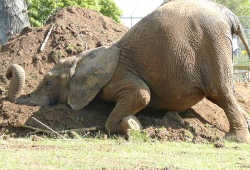Dorothy – 21/5/99
Indicators for continued economic growth world wide are positive BUT the
key environmental indicators are negative so change to a Sane Humane Ecological future is imperative. Is this feasible?
Part 1 of a three part interview with George Ridley
|
|
| George Ridley Photo source George Ridley |
How should a country’s economy be organised? This is a subject of constant debate all round the world.
James Robertson in his book, “The Sane Alternative”, lists five distinctly
different possibilities.
1. Business as usual The first possibility he considers is “business as usual”. Under this policy the view is that there are no real problems and there is no need for
a major change – just polishing in some areas. This will bring no dramatic change in the methods of handling difficulties and no change in
people’s attitudes.
George believes that people in general hold this view because they are frightened of radical change. They are happier with ‘band aid’ solutions
which will not work long term. It appeals to the placid, the pragmatic,
good operators, successful trouble shooters, moderate reformers, people who
are content with their present position and their future prospects under
the existing system. It also appeals to defeatists, cynics, and worldly-wise men who are not prepared to try to change the system.
2. Disaster This view holds that things will break down catastrophically; that
there is no alternative to increasing unrest, famine, pollution, poverty,
misery, disease, crime, war (possibly nuclear) on a national and international scale.
This view is held by calm and thoughtful people who have worked out the
possibilities carefully and who see no point in kidding themselves and others. It also attract pessimists, hell-fire merchants, preachers and
doomsters. Often personal experience of failure has left its mark on their
thinking about the world.
George believes that there are many who think like that but shut the thought out of their minds as too horrifying to contemplate, and try to
keep busy under the present system.
3. Authoritarian control Of those who advocate strong government the right wing variety agrees that
the risks of disaster are real, but the best way to avert the disaster is
to accept an authoritarian system of government taking over in times of
crisis. This happened in Rome under Julius Caesar and Augustus, in France
under Napoleon, and in Germany under Hitler. Hitler came forward with a
strong authoritarian policy to solve the social problems in Germany at
that time.
The British Commonwealth gave Churchill extensive powers during World War 2
and accepted his authoritarian control as what was needed at the time. After the war he was not the leader whom Britain wanted or needed.
This view appeals to people who think that they have more to lose from disorder than from dictatorship, and also to those with a domineering temperament or feeling that they belong to the governing rather than the
governed class.
The left wing view is found among Marxists, Communists as in Russia under
Stalin, and among some socialists.
4. The hyper expansionist future This view holds that we can break out of our present problems by accelerating the super-industrial drive of Western Society, using science
and technology. Those who hold this view believe that such developments
as space colonisation, nuclear power, computing, and genetic engineering
will enable us to overcome limits.
This view appeals to optimistic, energetic, ambitious, competitive people
for whom economic and technical achievement is more significant than personal and social growth. They are often men.
Depending on space colonisation to improve the situation puts the solutions
far away in the future.
Toxic waste from some nuclear power stations and other sources has been
dropped to the bottom of the sea in deep water. There is no proof that
this will not cause problems in the thousands of years before it is dissipated.
The deep oceans have been shown not to be a safe place for depositing waste. Fish from the deep waters of the Atlantic far from any sites used
for depositing waste have been found to contain toxic mercury and cadmium
levels well above the level considered satisfactory for human consumption.
When toxic chemicals are deposited in land sites they leach into the rivers
and get washed down into the sea and can accumulate in the food chain.
Numerous hazardous sites around New Zealand have to be decontaminated at
considerable expense, but the people who have gained from producing those
toxins have incurred no cost.
Genetically engineered food Many people are strongly averse to the use of genetically engineered food
for health reasons, but there are other undesirable outcomes which George
regards as more serious. The example of Monsanto’s development of genetically engineered soya beans resistant to Roundup points to some of
these. A monopoly has been created. The farmers become dependent on the
huge multinational for their seed and their spray. Some seed is being developed which is infertile so farmers cannot use the seed from their own
crops, but have to purchase new seed for each sowing.
We know that the evolutionary process depends on variability, on a diverse
population. Now monocultures of plants are being developed. which will
destroy diversity, so if changes in the environment occur we will not have
another variety which may withstand the changes better than the one on which we have concentrated.
In New Zealand most of our exotic plantations of are of pine trees. If
something comes up in the environment which attacks the pine trees our whole forestry industry could be gone, whereas if we have a variety of plantations some will survive.
George sees genetic engineering as an arrogance – like human beings playing
God and able to manufacture anything. We are able to alter human beings
by changing genes at the foetal stage and we are almost at the stage where
it will be possible to manufacture human beings. This raises serious
moral questions which need to be sorted out soon.
The hyper-expansionist people believe that genetic engineering is good because they will develop plants which are resistant to pests and will
therefore require no toxic spraying. There is an element of truth in this
view which they promote to the environmentalists.
The disadvantages George sees are the loss of biodiversity and the handing
over of power to those with money and access to the technology, with a resultant threat to democracy.
We need to investigate the connections of the scientists who make statements about the health risks, as often they are in the pay of the companies who will make profits from the developments.
5. The sane, humane, ecological future This view holds that instead of accelerating we should change direction.
The key to the future is not continuing expansion but balance. It implies
a shift of emphasis from economic growth to social and psychological growth. Top priority goes to learning to live supportively and cooperatively with one another.
This view appeals to optimistic, participative, reflective people who consider the other four options are unrealistic or unacceptable.
“State of the World 1998” published by Earthscan, London The World Watch Institute has published a State of the World volume every
year since 1994. The Institute looks at what is happening all around the
world in major areas such as sustaining the world’s forests, species like
birds and frogs becoming extinct, loss of biodiversity, loss of fisheries,
productivity of crop lands, recycling organic wastes, climate change, small
arms trade, and private capital going to developing countries.
Politicians in all the major New Zealand political parties – National, Labour, Act and the Alliance – want to solve our problems by economic growth. Economies have been growing. Korea was growing at about 8%, China
has been growing at 10 – 12%, the US at 3%, and until recently New Zealand
at 2.5-3%.
The economy continues to expand, but the ecosystem on which it depends does
not, which creates an increasingly stressed relationship. Investment, production and trade are growing, and the four main political parties in
New Zealand base their policies on getting more money by increasing them
still further.
The indicators for continued economic growth world wide are positive,
but the key environmental indicators are negative. Forests are shrinking, water tables are falling, soils are eroding, wetlands are disappearing, fisheries are collapsing, pastoral lands are deteriorating,
rivers are running dry, temperatures are rising, coral reefs are dying, and
animal and plant species have been disappearing at a much faster rate in
the last fifty years. Sometimes the Nile and the Ganges do not reach the
sea.
In “State of the World 1998” Chapter 1, The Future of Growth, Page 4, Lester Brown of the World Watch Institute writes:
“The global economy, as now structured, can’t expect to expand much longer
if the ecosystem on which it depends continues to deteriorate at the current rate.”
Many progressive thinkers believe that “The Market” should serve the needs of citizens in environmentally sustainable ways. Government should develop a financial and regulatory framework to encourage
personal and local self-reliance, economic efficiency and enterprise, social justice and environmental sustainability.
There is a need to reward activities that are socially and environmentally
benign, and not the reverse, as at present.
There should be more recognition of the importance of voluntary work in the
home, in NGOs and community organisations.
Read Part 2 of the interview with George for his comments on the present state of New Zealand society.





